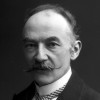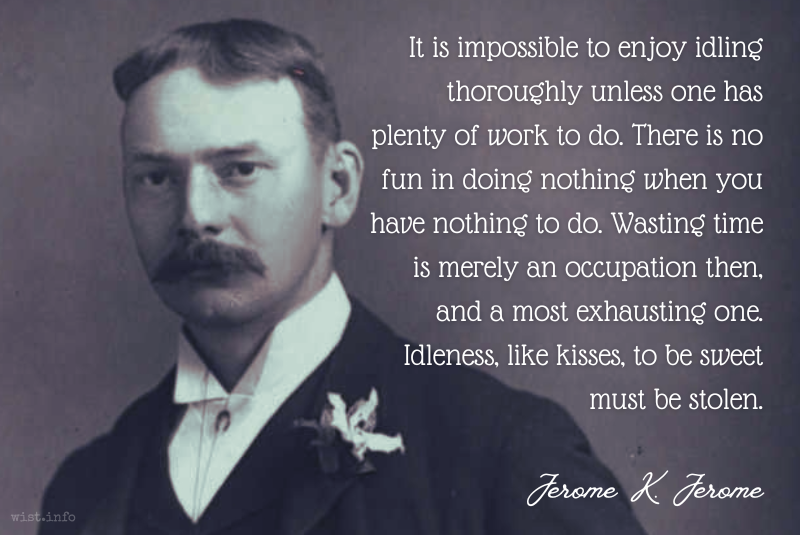Cats are dangerous companions for writers because cat watching is a near-perfect method of writing avoidance.
Dan Greenburg (1936-2023) American writer, humorist, journalist
In Bill Hayward, Cat People (1978)
(Source)
Quotations about:
avoidance
Note not all quotations have been tagged, so Search may find additional quotes on this topic.
A resolution to avoid an evil is seldom framed till the evil is so far advanced as to make avoidance impossible.
I doubt if there is anybody in this hall who really ever sought sobriety. I think we were trying to get away from drunkenness. I don’t think we should despise the negative. I have a feeling that if I ever find myself in Heaven, it will be from backing away from Hell.
Edward Dowling (1898-1960) American Jesuit priest ["Father Ed"]
Address to the Alcoholics Anonymous Twentieth Anniversary Convention, St. Louis, Missouri (Jul 1955)
(Source)
Reprinted in Alcoholics Anonymous Comes of Age (1957). Dowling was spiritual advisor to Bill Wilson, co-founder of AA.
Variants of the final line are also attributed (though they only quoted it) to Mariette Hartley, Carrie Fisher, and Courtney Love.
More discussion about the history of quotation: If I Ever Find Myself in Heaven, It Will Be From Backing Away From Hell – Quote Investigator.
There is more valour needed not to take up the affair of honor than to conquer in it. When there is one fool ready for the occasion, one may excuse oneself from being the second.
[Estima por más valor el no empeñarse que el vencer. y ya que haya un necio ocasionado, escusa que con él no sean dos.]
Baltasar Gracián y Morales (1601-1658) Spanish Jesuit priest, writer, philosopher
The Art of Worldly Wisdom [Oráculo Manual y Arte de Prudencia], § 47 (1647) [tr. Jacobs (1892)]
(Source)
(Source (Spanish)). Alternate translations:
He finds greater advantage in not engaging, than in overcoming: and though some rash blockhead may be ready to begin, yet he has a care not to make a second.
[Flesher ed. (1685)]
He will deem it better courage not to become ensnarled, than to win, and even should the everpresent fool bob up, he will excuse himself on the ground that he does not wish to be another.
[tr. Fischer (1937)]
There is more courage in avoiding danger than in conquering it. He sees that there is already one rash fool, and avoids adding another.
[tr. Maurer (1992)]
At least there are more forms of escapism than those who bandy that word about are always aware of. An artist, for instance, may escape from the problems of his art — which are hard to solve — into a consideration of the problems of society which he sometimes seems to think require of him only that he complain about them. Even the ordinary citizen is not always guiltless of similar techniques and it is, for example, sometimes easier to head an institute for the study of child guidance than it is to turn one brat into a decent human being.
I praise your body’s beauty. “Quite enough,”
Galla, you say, “it’s better in the buff.”
Let’s go a-bathing then, but you decline.
Galla, are you afraid you won’t like mine?[Cum faciem laudo, cum miror crura manusque,
Dicere, Galla, soles ‘Nuda placebo magis,’
Et semper vitas communia balnea nobis.
Numquid, Galla, times, ne tibi non placeam?]Martial (AD c.39-c.103) Spanish Roman poet, satirist, epigrammatist [Marcus Valerius Martialis]
Epigrams [Epigrammata], Book 3, epigram 51 (3.51) (AD 87-88) [tr. Barger]
(Source)
(Source (Latin)). Alternate translations:
When ore I praise thy face, hand, leg; far more
(Thou sayst) I'd like thee, if all naked ore;
Yet still thou shun'st the common Baths with me;
Fear'st thou that I should not be lik'd by thee?
[tr. May (1629), 3.50]
When, Galla, thy face, hands, and legs I admire,
Thou say'st, I, when naked more pleasing shall be.
Yet, one common bath, I full vainly require:
Dost fear that I shall not be pleasing to thee?
[tr. Elphinston (1782), Book 4, Part 3 ep. 38]
When I praise your face, when I admire your limbs and hands,
You tell me, Galla, "In nature's garments I shall please you still better."
Yet you always avoid the same baths with myself!
Do you fear, Galla, that I shall not please you?
[tr. Bohn's Classical (1859)]
When I compliment your face, when I admire your legs and hands,
You are accustomed to say, Galla: "Naked I shall please you more,"
And yet you continually avoid taking a bath with me.
Surely you are not afraid, Galla, that I shall not please you?
[tr. Ker (1919)]
Whene'er I praise your legs and arms,
Your eyes and rosy cheeks admire,
You whisper low -- "My hidden charms
A deeper wonder will inspire."
And yet whenever I suggest
A bath together, you say no,
Perhaps you fear that when undressed
Without my clothes I shall not do.
[tr. Pott & Wright (1921)]
When I praise your face and lovely hands
Or to your legs allude,
This is what you always say:
"I'm nicer in the nude."
And yet you constantly decline
To go to the Baths with me.
Are you afraid you'll be displeased
With my own nudity?
[tr. Marcellino (1968)]
When I say how I like your face, Galla,
and admire your hands and your legs
you observe "I'm even nicer in the nude."
But you don't go to the baths when I do.
Are you afraid to look at me?
[tr. Bovie (1970)]
When I praise your face and admire your legs and hands, Galla, you are apt to say: "You'll like me better naked." And yet you always avoid taking a bath with me. Can it be, Galla, that you are afraid you may not like me?
[tr. Shackleton Bailey (1993)]
I praise your face and figure as divine
"But if you saw me nude -- I really shine"
Yet rather than shed clothes you seek distraction
Because a letdown will be my reaction?
[tr. Wills (2007)]
When I admire your face and legs and hands,
"You'll like me better nude," you always tease.
Yet, Galla, you won't bathe with me in public.
Am I the one you fear will fail to please?
[tr. McLean (2014)]
Character is that which reveals moral purpose, showing what kind of things a man chooses or avoid.
[ἔστιν δὲ ἦθος μὲν τὸ τοιοῦτον ὃ δηλοῖ τὴν προαίρεσιν, ὁποία τις ἐν οἷς οὐκ ἔστι δῆλον ἢ προαιρεῖται ἢ φεύγει διόπερ οὐκ ἔχουσιν ἦθος τῶν λόγων ἐν οἷς μηδ᾽ ὅλως ἔστιν ὅ τι προαιρεῖται ἢ φεύγει ὁ λέγων.]
Aristotle (384-322 BC) Greek philosopher
Poetics [Περὶ ποιητικῆς, De Poetica], ch. 6, sec. 17 / 1450b.9 (c. 335 BC) [tr. Butcher (1895)]
(Source)
Original Greek. The key word êthos [ἦθος] is generally given here as "character." Alternate translations:
- "Character in a play is that which reveals the moral purpose of the agents, i.e. the sort of thing they seek or avoid, where that is not obvious." [tr. Bywater (1909)]
- "Psychology in the sense of "an index to the quality of the purpose" has for its sphere places where the ulterior purposes of an immediate resolve (positive or negative) is naturally obscure." [tr. Margoliouth (1911)]
- "Character is that which reveals choice, shows what sort of thing a man chooses or avoids in circumstances where the choice is not obvious." [tr. Fyfe (1932)]
- "Character is that which reveals decision, of whatever sort." [tr. Janko (1987), sec. 3.1.3]
- "Moral character is what reveals the nature of people's fundamental options." [tr. Kenny (2013)]
A great part of the happiness of life consists not in fighting battles but in avoiding them. A masterly retreat is in itself a victory.
The man who looks for security, even in the mind, is like a man who would chop off his limbs in order to have artificial ones which will give him no pain or trouble.
Y2K was a real end-of-civilization problem. And the people who could deal with it treated it as such, working flat-out on disaster management for the last year-long countdown. With the result that the end-of-the-world scenario didn’t happen … causing everyone not directly involved to conclude that it was a false alarm.
[T]he behaviour of the cat was somewhat peculiar. It was soon noticed that when there was work to be done the cat could never be found. She would vanish for hours on end, and then reappear at meal-times, or in the evening after work was over, as though nothing had happened. But she always made such excellent excuses, and purred so affectionately, that it was impossible not to believe in her good intentions.
George Orwell (1903-1950) English writer [pseud. of Eric Arthur Blair]
Animal Farm, ch. 3 (1945)
(Source)
It is impossible to enjoy idling thoroughly unless one has plenty of work to do. There is no fun in doing nothing when you have nothing to do. Wasting time is merely an occupation then, and a most exhausting one. Idleness, like kisses, to be sweet must be stolen.
Jerome K. Jerome (1859-1927) English writer, humorist [Jerome Klapka Jerome]
“On Being Idle,” Idle Thoughts of an Idle Fellow (1886)
(Source)
A great deal of intelligence can be invested in ignorance when the need for illusion is deep.














